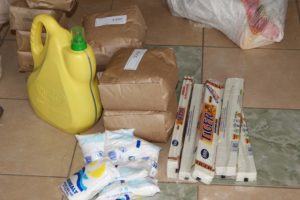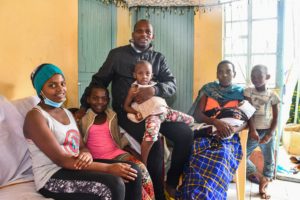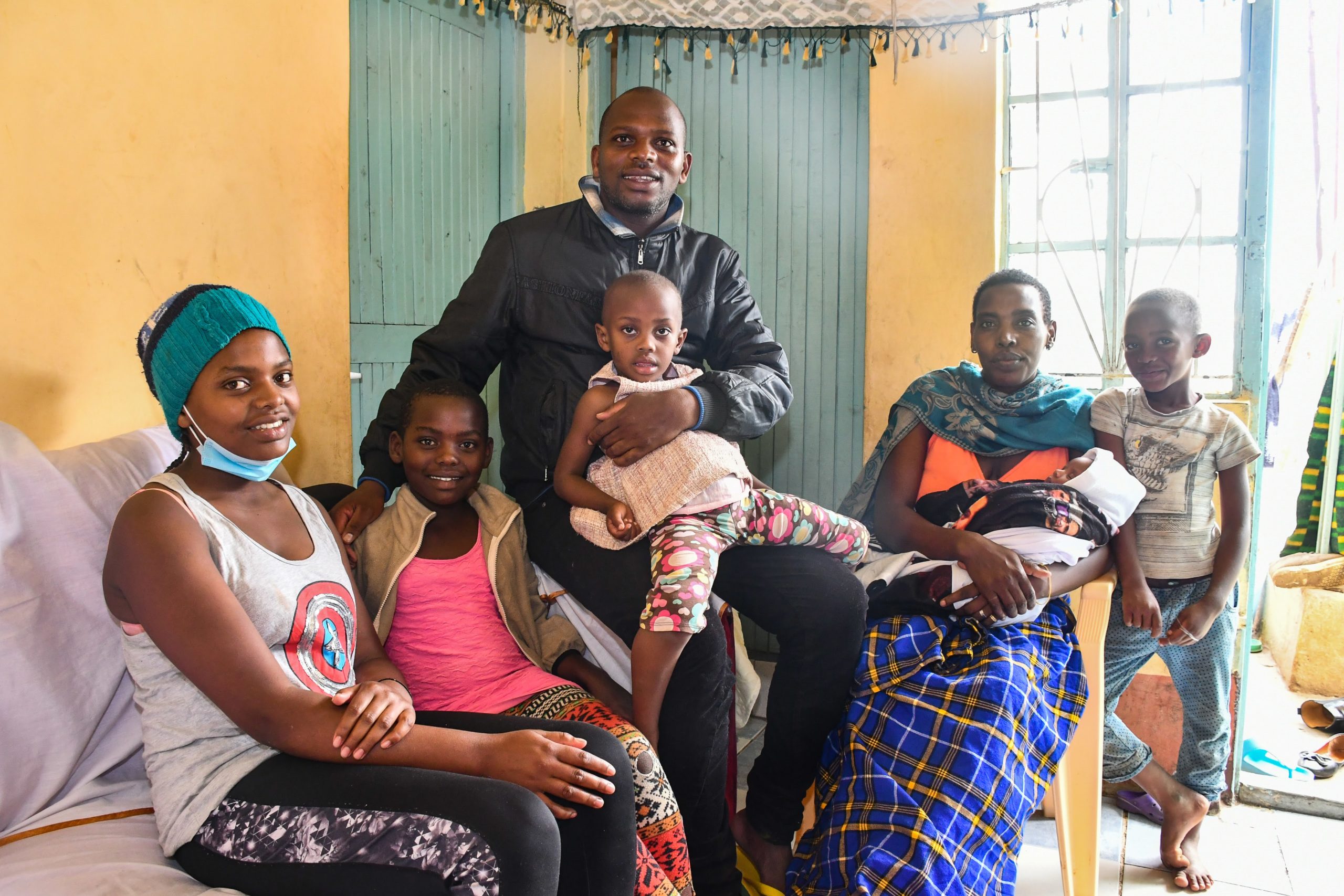By James Ochweri, Communications Officer

It’s the first week of December 2020, and the COVID-19 pandemic is still ravaging the world. A group of people sits quietly in a church hall in Nairobi’s Kasarani area, awaiting our arrival. In front of them, sit bale after bale of dry food. It’s food distribution day for RefugePoint’s clients in the area, and they have arrived early. Their faces are neutral as they sit and wait, laps covered with sacks, which they will use to carry their food rations home. Some come alone; others come with a friend or one of their children to help.
We set up and start distributing food to our clients. They line up one by one in the order that they came, leaving appropriate physical distance between themselves. The group self-enforces the order, giving no chance for stragglers and latecomers to get ahead of those who arrived early. In one corner of the church hall, one of our social workers, Beatrice, sits with clients, reviewing their progress on their case plans. The social work team uses these food distribution days to follow up with clients due to restrictions on home visits posed by the pandemic. Our medical team also takes this chance to distribute NHIF cards and water treatment tablets.
Similar scenes are happening across the city’s high-density neighborhoods during RefugePoint’s food distribution week, usually the first week of every month. This food assistance helps families who are most at risk of malnutrition. These families connect with RefugePoint through friends and the community navigators – fellow refugees working in various areas of the city on behalf of RefugePoint.
As the food distribution exercise draws to an end, we leave the venue and go deep into the adjoining Mwiki Estate to deliver a food package to John’s family. He lives with his wife Angelique and their children, Solange, Irene, Blessing, Joyeuse, and their newborn son Ruhumuriza. John and his family fled from conflict in the Democratic Republic of Congo in 2015, traveling through Uganda and into Kenya. John got work as a nightguard, then started supplementing his income by selling melons on the roadside during the day. The previous week, we provided emergency food rations to his family while John was in Machakos, about 40 miles away, attending to his wife. John’s wife had developed breathing complications shortly after returning home with their newborn baby, and John rushed her back to the hospital. The closest facility that could admit her for specialized treatment was the Machakos Level Five hospital, so he took her there. Taking care of his wife meant that John could no longer work, putting the family’s nutritional needs at risk. RefugePoint immediately stepped in to help.

John and Blessing welcome us as we arrive at their apartment building. When we step into their apartment on the 4th floor, we find Angelique entertaining two of her friends who dropped by to check on her progress. They excuse themselves and leave her with words of encouragement as we take a seat. Angelique seems to be in better health, and she is happy and cheerful.
“Your help came just when we needed it. Thank you so much,” Angelique tells us as John goes back downstairs to round up the rest of the children. Beatrice asks Angelique some follow-up questions and gives her advice on how to get the information she needs about her recovery when returning to the hospital for a check-up in a few days. John comes back into the apartment after a while with Irene and Joyeuse in tow. He explains that Solange took baby Ruhumuriza to the clinic for a scheduled vaccination, and he expects them to return at any moment. Just as we arrange for the family to take a photo, Solange walks in. She gingerly unwraps her baby brother from the sling on her back and places him in Angelique’s arms. They’ve already nicknamed him Lucky.
The monthly food distribution exercise in Nairobi is essential, particularly during the pandemic. It ensures that our clients meet at least one of their traditional basic needs. In the initial phase, where individuals are still unstable, food is one of the pillars that help clients stabilize as a first step on the pathway to self-reliance.
